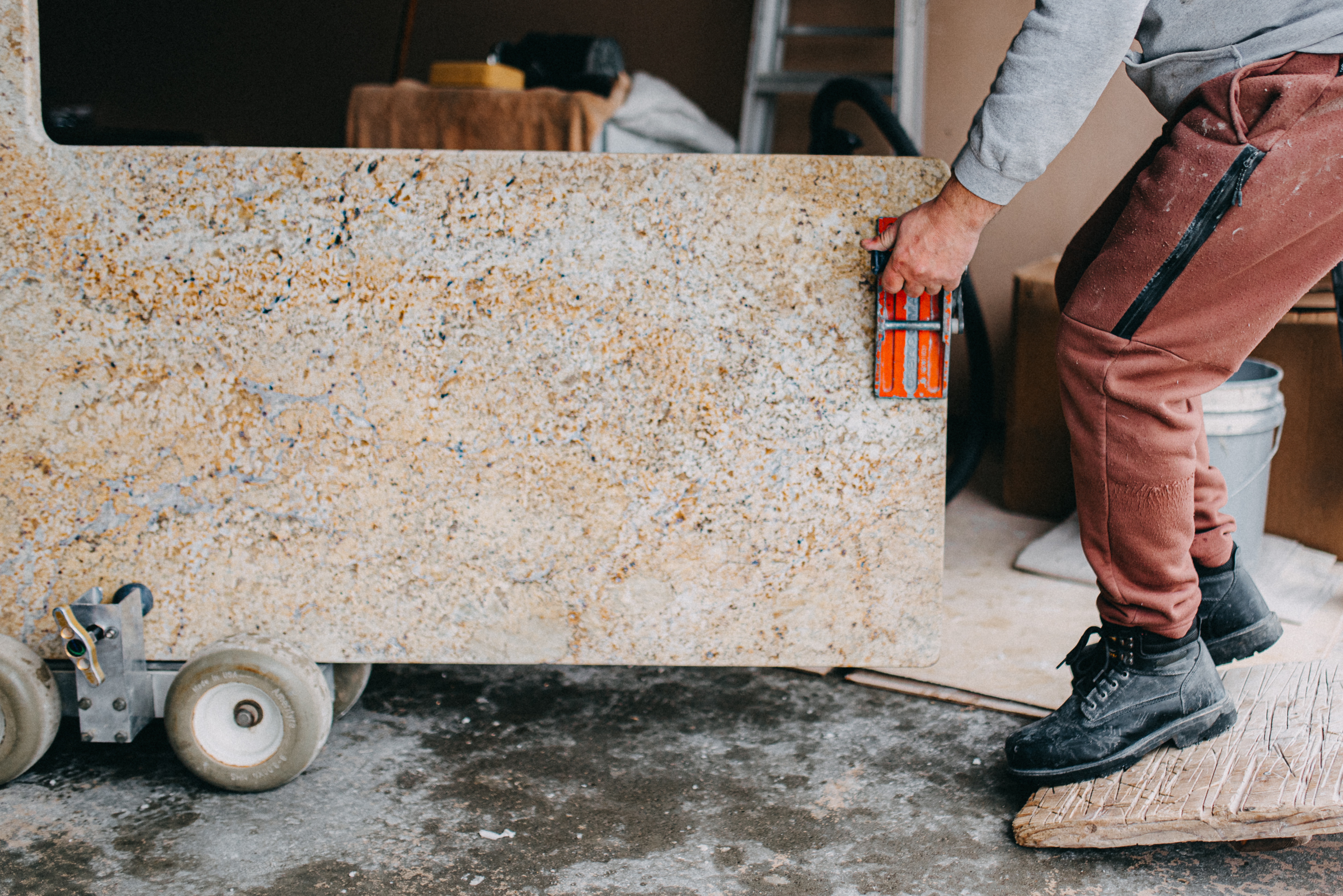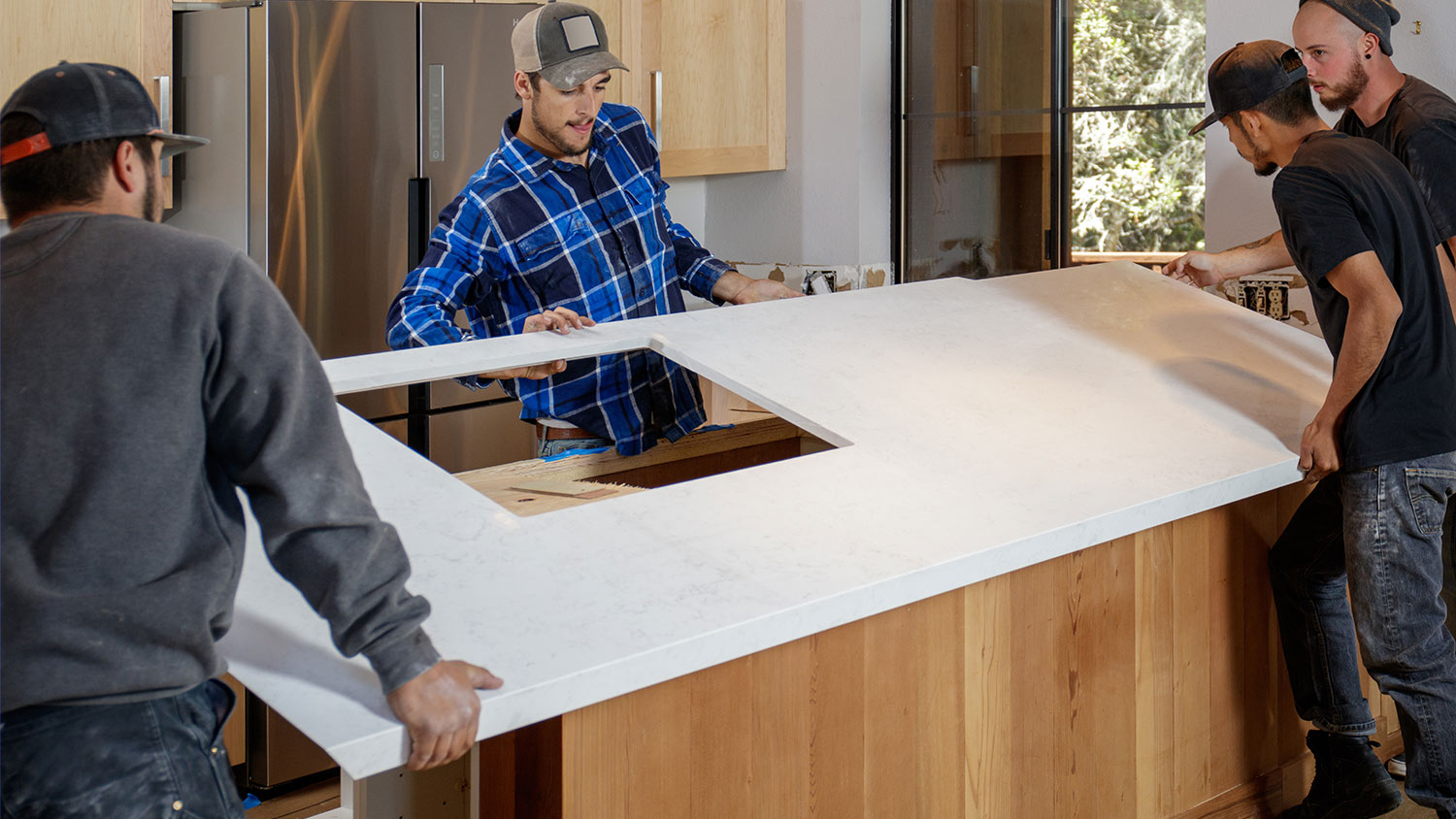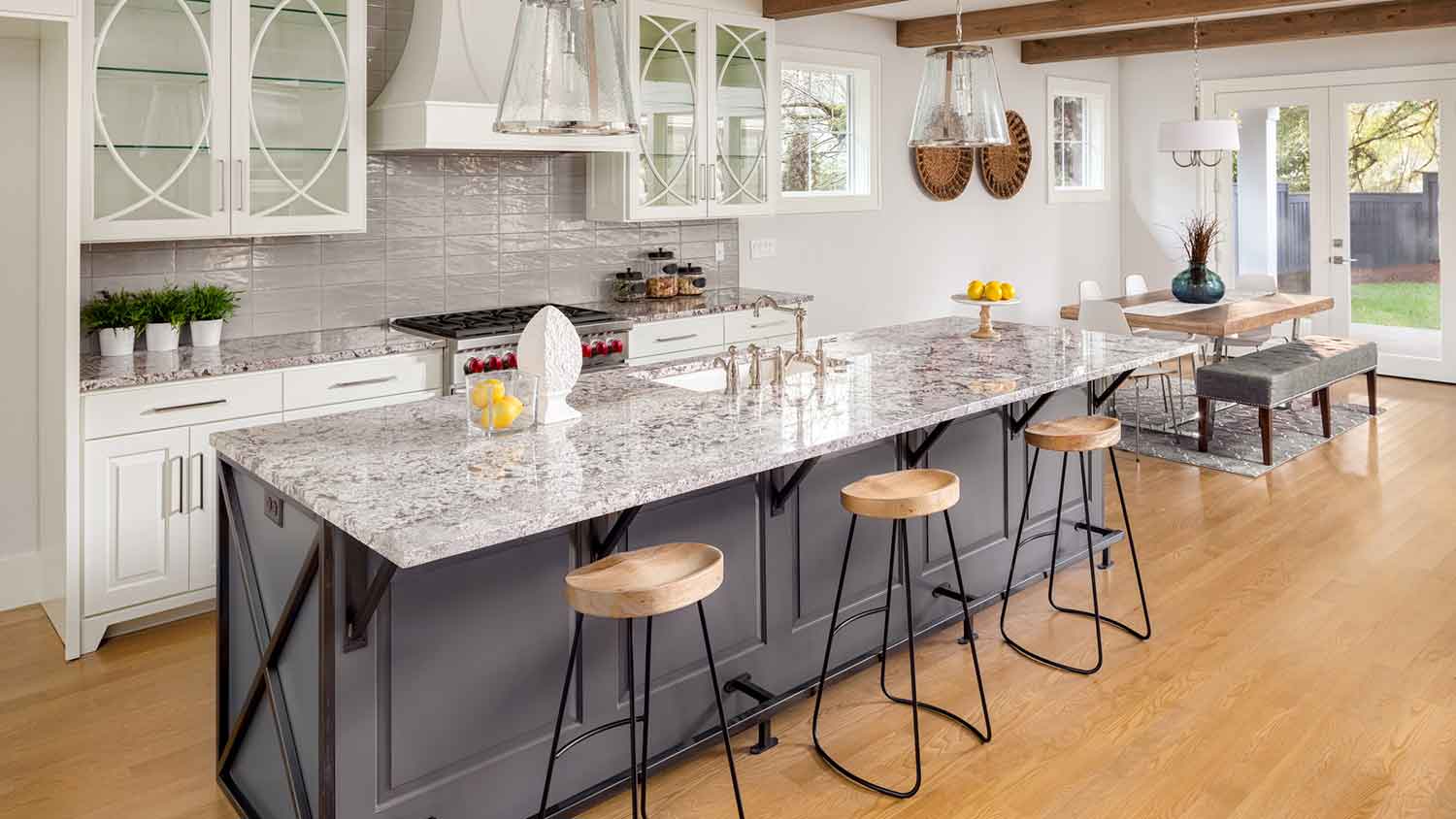
Butcher block countertops are a popular and durable choice for active kitchens. Learn how much it costs to install butcher block counters and what factors may affect pricing.
Know your granite’s weight before you lift


Granite weight depends on the square footage of the space.
It also depends on the desired thickness.
Measure the square footage of the space first.
Then you’ll multiply the square footage by the desired thickness.
A granite fabricator can help measure and install granite.
Granite is a heavy, durable material used for countertops in kitchens and bathrooms, so it’s normal to wonder, “How much does granite weigh?” if you’re considering having it installed. Before you wrestle with a slab that ends up being too big or small for your space, use our granite weight calculator to take the guesswork out of this weighty decision.
When planning granite countertop installation, you’ll need to account not only for the square footage but also the weight of the material, which varies based on the thickness of the slab. Granite is a dense, heavy stone—it weighs about 12 pounds per square foot per inch of thickness. The table below shows estimated weights for common square footage amounts at 1-inch, 2-inch, and 3-inch thicknesses.
| Square footage | Granite weight for 2-inch thickness | Granite weight for 3-inch thickness | Granite weight for 3-inch thickness |
|---|---|---|---|
| 10 | 140 lbs. | 240 lbs. | 360 lbs. |
| 20 | 240 lbs. | 480 lbs. | 720 lbs. |
| 30 | 360 lbs. | 720 lbs. | 1080 lbs. |
| 40 | 480 lbs. | 960 lbs. | 1440 lbs. |
| 50 | 600 lbs. | 1200 lbs. | 1800 lbs. |
Use the granite weight calculator below to quickly determine how many pounds of granite you need based on the square footage of the countertops and your chosen slab thickness.
Granite Weight (pounds) = Square Footage x Thickness (inches) x 12-13 pounds per square foot (at 1-inch thickness)

Granite countertops are no small investment, which is why it’s important to get the right measurements before ordering to avoid costly mistakes. The last thing you want is for installation day to arrive only to have granite countertops that are too small or don’t fit your kitchen. The calculator below shows how to measure for countertops.
Thankfully, there’s no need to reinvent the square footage wheel when it comes to measuring countertops for granite. You’ll need to first measure the length in inches, then the depth from the back to the front in inches, and multiply the two. You’ll also want to multiply the length and depth by 10% to account for waste.
Square footage = Length x Depth x 10% for waste
Unless you’re a licensed contractor with a crew of friends and family well-versed in hauling and installing granite, you’ll need to hire your local granite fabricator, who can provide full-service installation. They’ll be able to measure, cut, polish, transport, deliver, and install your countertops. These pros can also handle sink cutouts and seams with precision and offer a variety of granite slabs for you to pick from in case you’re looking for something more unique.
From average costs to expert advice, get all the answers you need to get your job done.

Butcher block countertops are a popular and durable choice for active kitchens. Learn how much it costs to install butcher block counters and what factors may affect pricing.

Discover cabinet installation cost estimates, including average prices, key cost factors, and tips to save on your new kitchen or bathroom cabinets.

If you’re looking to refinish your countertops, epoxy will make them shine for years to come. This guide will help you budget for epoxy countertop costs.

Installing countertops is grueling work, so leaving a tip for your countertop installers is always an appreciated gesture—but how much depends on the quality of work.

Choosing countertops is a big deal, only comparable to choosing your cabinetry. Read this guide if you are waffling between porcelain or quartz countertops.

Though concrete is durable, it does have some issues. You can combat these common problems with concrete countertops if you know what to look for.